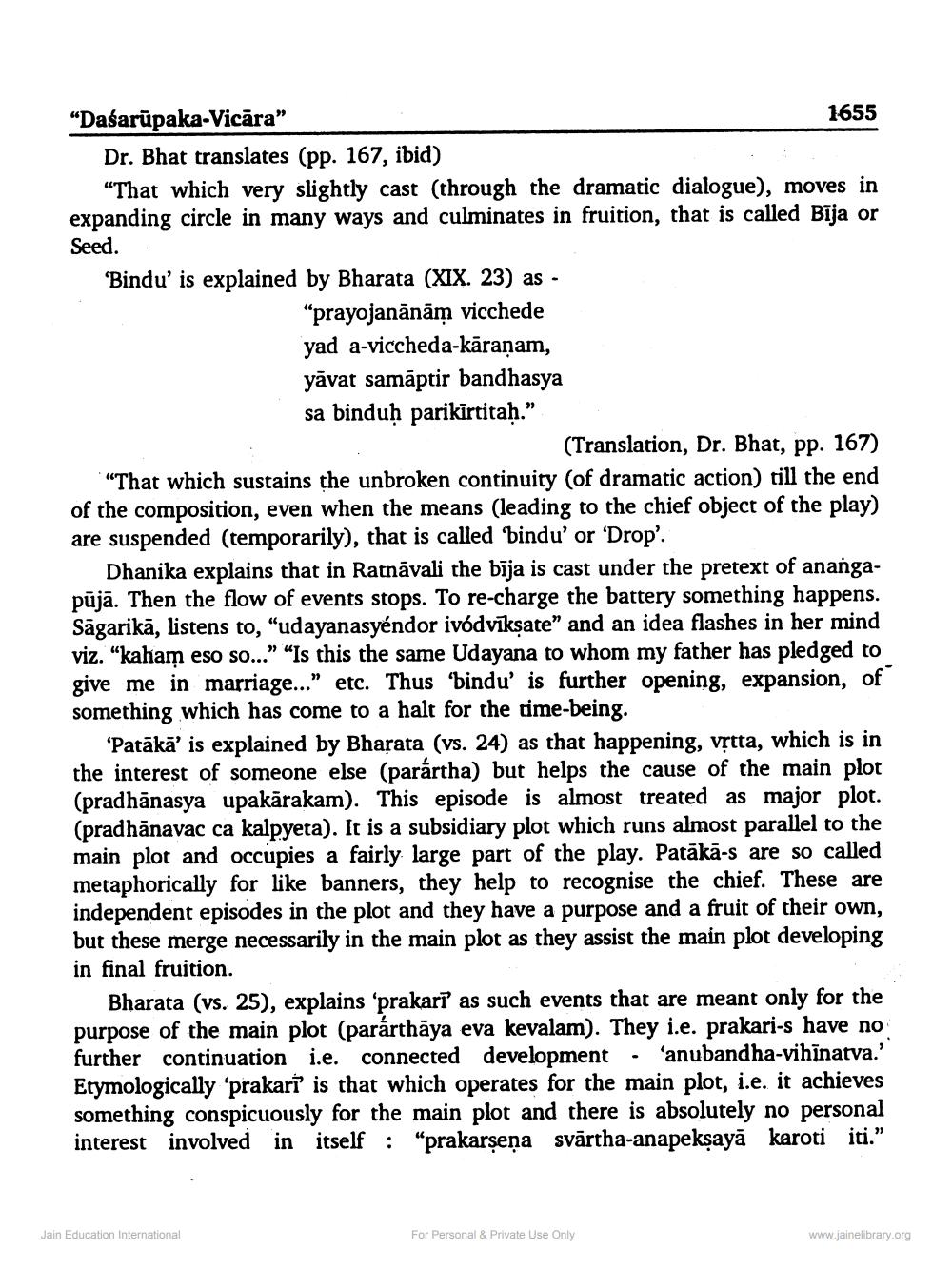________________
"Dasarūpaka-Vicăra"
1655
Dr. Bhat translates (pp. 167, ibid)
"That which very slightly cast (through the dramatic dialogue), moves in expanding circle in many ways and culminates in fruition, that is called Bīja or Seed. ‘Bindu' is explained by Bharata (XIX. 23) as -
“prayojanānām vicchede yad a-viccheda-kāraṇam, yāvat samāptir bandhasya sa binduḥ parikīrtitaḥ.”
(Translation, Dr. Bhat, pp. 167) "That which sustains the unbroken continuity (of dramatic action) till the end of the composition, even when the means (leading to the chief object of the play) are suspended (temporarily), that is called 'bindu' or 'Drop'.
Dhanika explains that in Ratnāvali the bīja is cast under the pretext of anangapūjā. Then the flow of events stops. To re-charge the battery something happens. Sāgarikā, listens to, "udayanasyéndor ivódvikșate” and an idea flashes in her mind viz. "kaham eso so..." "Is this the same Udayana to whom my father has pledged to give me in marriage..." etc. Thus 'bindu' is further opening, expansion, of something which has come to a halt for the time-being.
'Patākā is explained by Bharata (vs. 24) as that happening, vịtta, which is in the interest of someone else (parártha) but helps the cause of the main plot (pradhānasya upakārakam). This episode is almost treated as major plot. (pradhānavac ca kalpyeta). It is a subsidiary plot which runs almost parallel to the main plot and occupies a fairly large part of the play. Patākā-s are so called metaphorically for like banners, they help to recognise the chief. These are independent episodes in the plot and they have a purpose and a fruit of their own, but these merge necessarily in the main plot as they assist the main plot developing in final fruition.
Bharata (vs. 25), explains 'prakarī as such events that are meant only for the purpose of the main plot (parārthāya eva kevalam). They i.e. prakari-s have no further continuation i.e. connected development - 'anubandha-vihữnatva.' Etymologically 'prakari is that which operates for the main plot, i.e. it achieves something conspicuously for the main plot and there is absolutely no personal interest involved in itself : "prakarșeņa svārtha-anapekṣayā karoti iti.”
Jain Education International
For Personal & Private Use Only
www.jainelibrary.org




